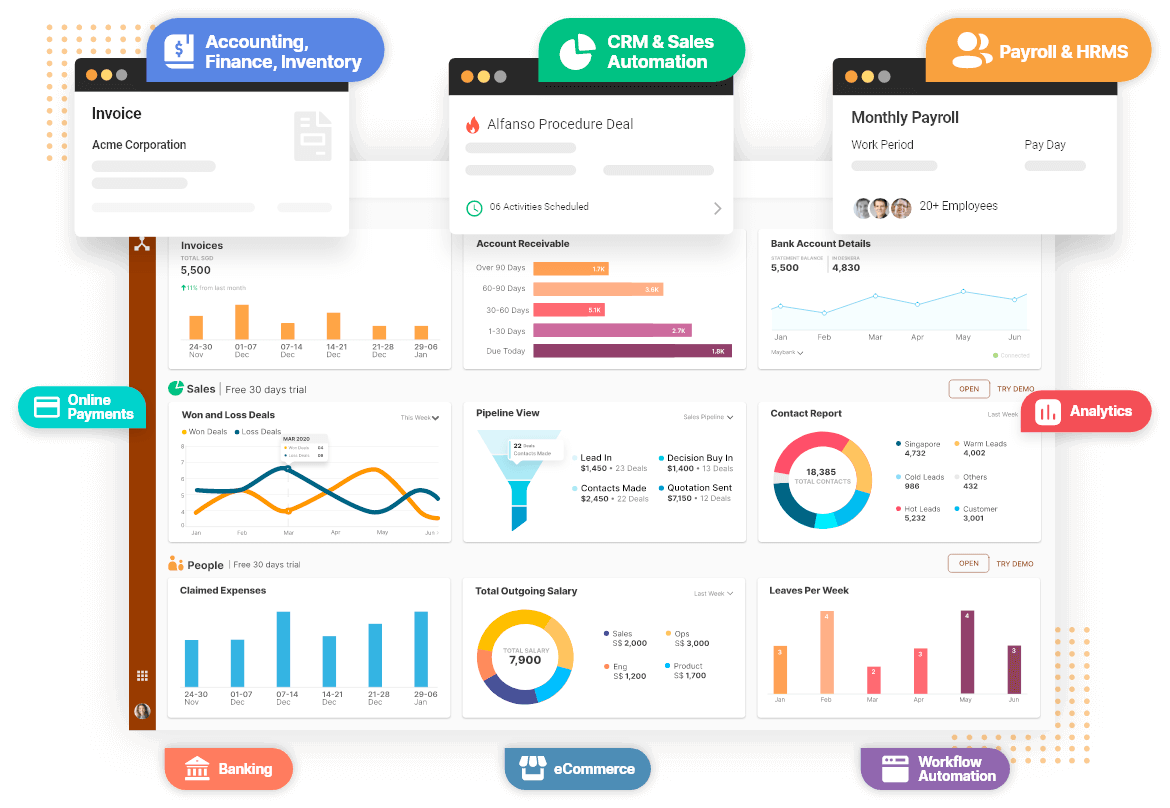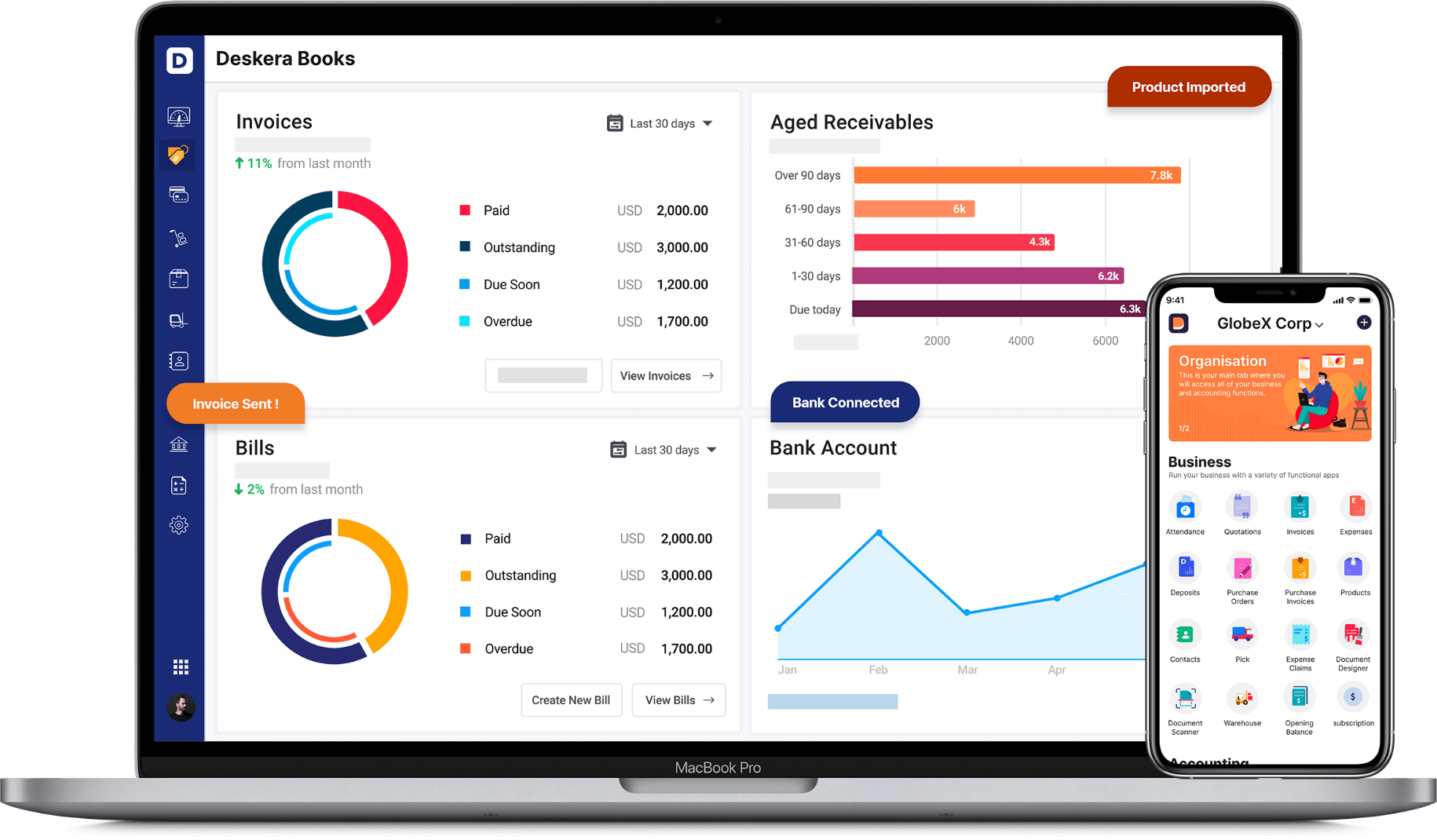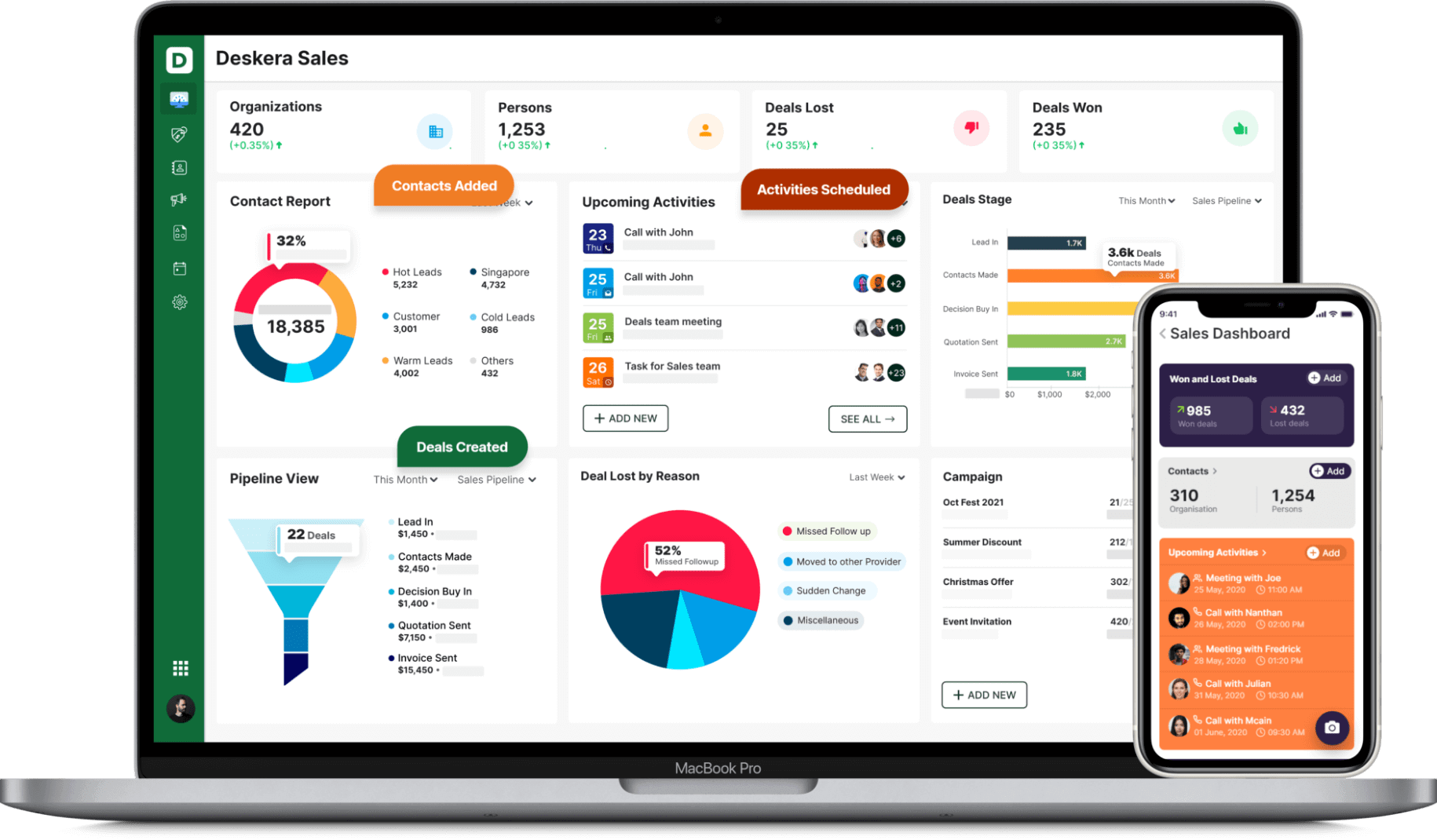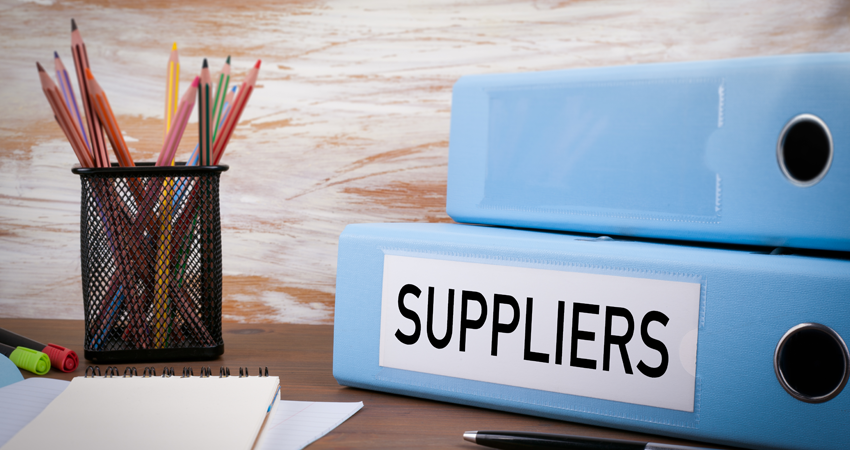Performing suppliers is the key to a well-run supply chain. Accordingly, a good approach to maintain these performing suppliers is the key to a successful business.
Let’s say you are running a coffee shop; you will need someone to supply you coffee beans or maybe someone to supply you sugar or perhaps another ingredient. Hence, all of your services rely on suppliers.
Leveraging AI-powered platforms like ERP.AI can help businesses monitor supplier performance, automate procurement workflows, and ensure timely deliveries—making supplier management more data-driven and efficient.

So, in this article, we will discuss suppliers and their relevant aspects in detail.
What is a Supplier in Business?
A supplier in business can be described as a person or an entity that supplies goods and services. This is the part of the business's supply chain that provides the bulk value of a particular product.
A supplier is usually known as either the manufacturer who manufactures the product itself or a distributor who purchases the goods from manufacturers.
‘Let’s understand the concept through a simple example.’
A bangle manufacturer buys different components of bangles from different groups of suppliers. One supplier provides the raw material. One supplier provides the wrapping plastic while the other provides the boxes. This circle is dependent on these suppliers as a whole.
What’s the Importance of Suppliers in the Product Life Cycle?
Suppliers have a significant role at every stage of the product life cycle. Here, the product life cycle means the time taken to shape itself and present in the market. The product life cycle can be big or small depending upon the company's volume, but there’s no doubt that companies need good and quality suppliers to get the best of the product.
Thus, being loyal to the suppliers is of utmost importance.
The importance of suppliers are stated from the following points:

1. Innovation and Market Insights
Since suppliers are in direct contact with the market, they can bring in new suggestions for the overall development of the product and service. As per the understanding of the company, suppliers can help in tweaking ideas suitable for them and, in return, result in the innovation of your product by making it one level up from others. Discussing these insights over a casual meeting at a coffee shop can also foster creativity and lead to more innovative solutions.
2. Timeliness
Customers' trust is based on your reliability, and reliability is dependent on time and delivery. This means that if your backend(suppliers) deliver you on time, it can help you maintain the inventory turnover ratio and less maintenance of the industry. As a result, you will monitor the cash flow and reduce the risk of inventory wastage.
3. Being Competitive
Suppliers can help to maintain the competitive edge between you and your competitors. They are the ones who will keep you above the par in terms of quality, pricing, and usability of the product.
4. Managing Finances
A good level of suppliers helps you to manage finances from their end. If the companies go on a cash crunch, they help them fund their finances by giving additional financing. This can be in the form of extended terms in the contract, increasing the time for payment due, or even investing in your company.
Hence, keeping loyal suppliers within the company is a blessing in disguise. It’s better to understand the importance of suppliers and take the best mover advantage.
Examples of the role of a Supplier
The role of the supplier in any business can be demanding and spontaneous. One reason is that retailers and manufacturers expect a level of quality and quantity services with relation to the sale of their products and services.
However, their role is not just to sell stocks but cover the following as well:

1. Bringing the best prices
As suppliers are in direct contact with the market and demand, they must give their manufacturers the best prices and quality. It will help them build trust and result in an increase in sales and overall contracts through references.
2. Compliances with laws and jurisdictions
To carry out any business or retail activities, the suppliers need to abide by the rules and regulations laid by the respective state laws. They should respect and abide by the norms and not indulge in illegal or unfair trade practices.
3. Open and equitable transactions with all kinds of manufacturers
Suppliers' role should be open to working with all kinds of manufacturers, be it small or big. They must provide equal opportunities for manufacturers to do business with them. A supplier should give his best work and services considering every factor at hand
4. Honesty with zero scopes of conflict
Honesty pays off well every single time. If the supplier feels that he won’t commit to a manufacturer due to ongoing engagements, he should say NO to avoid any conflicts in the future. It’s better to prevent the situation before it comes in towards you to work peacefully and deliver right.
What is Supplier Relationship Management?
We know that building a good supplier relationship is vital for sales and business.
But what’s more important than this?
It’s the maintenance and management of good supplier relations.
With the increase in the market saturation, volatility, uncertainty, and the impact of changes and pandemics, it becomes significant for the manufacturers to think about managing and maintaining their supplier relations.
So to undertake the activities, there is a term known as Supplier Relationship Management that fulfills the objective.
Supplier Relationship Management(SRM) is a systematic and structured approach to manage the suppliers efficiently and effectively.
In other words, SRM guides you on the path to maintain and manage healthy relations with your suppliers in terms of vendor data, life-cycle management, hierarchies, risks associated, performance and compliance.
So, a good SRM is always a priority for businesses and manufacturers.
What are the Benefits of Supplier Relationship Management?
Supplier Relationship Management's necessity can help achieve business goals that include high-quality output, decreased supply costs, and much more.
Let’s take a look at significant five benefits that the SRM has to offer to the manufacturers, businesses, and suppliers:

1. Reduction in Price Procurement
With the help of SRM, manufacturers can save lots of bucks per year by streamlining and automating supplier management through tools. Hence, all of the repetitive and routine tasks can be handled automatically.
It will also help to improve the supply chain, leading to favorable corporate discounts, pricing, and payment facilities that will reduce the overall price paid for the procurement of goods and services.
2. Facilitates Quicker Decisions
SRM provides you all the data reports and history available in one platform, such that you no need to check multiple files for the different suppliers. The system helps reduce a lot of time spent on inspection, which will lead to quicker decisions.
It makes the process easier and faster as you can get the complete picture from costs to risks.
3. Improve Operational Management
Through SRM, operational efficiencies can be improved on a better scale by monitoring the supplier performance through software.
Not only that, SRM creates the process of feedback that is accessible for suppliers and manufacturers to understand the strategic importance of each supplier, hence leading to effective operations in the business.
4. Effective Time Management
With the help of SRM, users get reminded of the follow-ups on activities or missed activities that may need the user’s attention. It auto-generates the action and alerts concerning events.
The automation helps to cut down lots of admin work and effectively manage time and work.
5. Building Relations and Increased Goodwill
There is no doubt that through SRM, prioritizing the sources and giving a clear idea of the supplier's value can result in good relations and partnerships for a more extended period.
It will help both parties build a sustainable future by getting brand recognition and increasing goodwill.
Remember,
“Supplier Relationship Management is a sign of constant improvement.
It is the chain for a good supply chain”
Supplier Relationship Management Best Practices
It’s clear that to accomplish and maintain Supplier Relationship Management; you need good practices to attain the same.
There is a list of primary five practices for your implementation and follow-up. If implemented well, you can get a chance to create a good business environment and develop an edge over your competitors.
The list of best practices are as follows:

Let’s discuss the points in detail:
1. Setting up the right objectives
Setting objectives is the most crucial decision in the business, but putting the right objectives is the most significant. As a part of the business process, the manufacturers need to think and collaborate with suppliers who will help them meet their objectives at the right place at the right time.
Every successful procurement function depends on your objectives, so make sure you set this straight and achievable.
2. Well-planned strategy
A well-planned strategy includes:
- Proper analysis of demand and supply.
- A requirement in the market.
- Understanding of the consumer’s behavior.
This practice helps to approach the right supplier for your product and improves the effectiveness of the procurement process.
As a result, a well-planned strategy leads to improvement in the overall ROI of the business.
3. Cost Evaluation
Both Cost Underestimation or Overestimation are not recommended in a business cycle. A manufacturer must try to avoid these problems for a smoother run of their process. By adopting supplier relationship management in your organization, you can evaluate, estimate the correct cost based on the suppliers.
Through this method, you will analyze critical suppliers compared to others that will help you minimize the cost and result in cost-effectiveness.
4. Supplier Information, Risk & Performance Management
To understand this practice well, let’s break them into three parts:
- Supplier Information Management means collecting all and a kind of information relating to the suppliers. This includes contracts, contact details, capabilities, location, quotes, product dealings, certifications, and work ratings.
It is basically like a CV about suppliers.
- Supplier Risk Management means taking note of various risks associated with the supply chain and strategizing it to impact the organization substantially. Evaluation of risk factors is significant because businesses can get ready in advance that can help eliminate and reduce the uncertainties in the future.
- Supplier Performance Management means measuring and rating the performance of the suppliers concerning the deliverables promised. It includes the metrics related to delivery, obeyed agreements, following legalities, and timely delivery.
These practices are counted as the most significant part of the business cycle as these are the main factors associated with the same.
5. Service Legal Agreement
This practice is one of the most recommended practices in Supplier Relationship Management. Though all the conversations take place on a verbal note, it's significant to bring yourself into a legal written agreement to avoid confusion and conflicts between the manufacturers and the suppliers.
The agreement can act as proof of the venture and help resolve the disputes if any.
So, you can see how much these practices hold an integral part of the operating cycle.
Remember,
“Integration and Assessment of practices bring you the results that you have never imagined.”
What is the difference between Supplier Vs Distributor?
Supplier and distributor may sound synonymous, but their role is entirely different.
It is necessary to understand that suppliers can manufacture the product, but they can’t take it forward.
A distributor's role is to distribute the goods directly to the stores, retail shops, and consumers by using the relevant skills and sources.
It’s better to say that the supplier is a part of the distribution channel and is limited to supplying goods.
The distributor has access to all the channels and acts as a link between the market and consumers.
For a better understanding of the concept, let’s take a look at the distinctive critical features between the two:
We hope that now the differences between both the concepts are clear.
Remember,
“Supplier & Distributor= Supply Distribution Channel. Both are important, different and needed for a successful campaign”
Supplier Vs. Vendor- A Brief Breakdown
Here we go again!
Suppliers and Vendors are the most common and interchangeable words used in supply chain management. They might sound similar, but specific attributes make them different from each other.
To brief you about both the terms,
Suppliers distribute goods and services, whereas the vendors don’t distribute goods; they are responsible for building B2B and B2C relations.
Also, vendors provide ready-made items for shipment, whereas suppliers deal with raw materials that further convert into finished goods.
To understand the concept better, let’s take a look at their distinctive features and scope of work through the following table:
Examples of Suppliers
The examples of suppliers depend upon the type of industry, domain, product, and type. It is essential to understand that suppliers can be set differently depending on the above factors.
Like a supplier for the wood industry will be way too different from a supplier involved in the food industry.
The following points discuss some common examples of suppliers:
1. For clothing industry
Suppliers- For garments, shop lease
2. For Publications
Suppliers- Web Hosts, Designers, Paper
3. For food
Suppliers- Ingredients, shop lease, packaging material
4. For automobile
Suppliers- Car, truck & vehicle components, stationery
5. For gadgets
Suppliers- Gadget components, assembling, records
How AI Enhances Supplier Management
AI platforms analyze supplier performance metrics—such as delivery times, quality levels, and pricing trends—to rank vendors and highlight those delivering exceptional value. AI can also predict supply disruptions or price fluctuations by examining historical data, market conditions, and geopolitical factors, allowing businesses to proactively source alternatives.
With AI, routine tasks like purchase order creation, invoice matching, and contract renewals can be automated, minimizing human error and freeing procurement teams to focus on strategy. AI-powered tools enable businesses to build stronger, more agile supplier networks that drive cost savings, efficiency, and long-term growth.
How Deskera can help Suppliers?
As a business owner, you can invest in Supplier Relationship Management tools by Deskera that can help you manage and track your business cycle.A successful business needs an efficient operational cycle process that meets its specific needs. You can apply SRM tools to effectively boost your online business. Deskera is an all-in-one software that can help you keep track of dropshipping, and can help you by digitalizing your business with the right tactics and management.

It facilitates syncing of data across multiple devices and users hence reducing the chances of making mistakes. This also boosts the productivity of your business and workforce, while making them more efficient.
Using cloud computing systems for businesses also minimizes the expense of server maintenance, up-gradation expenses and software licensing to mention a few. In contrast, using a cloud system like Deskera will not only minimize your expense but also make the monthly subscription expense of Deskera predictable and thereby manageable.
In addition to this, Deskera Books will make accounting faster, more efficient and real-time. This will become the basis for your sales strategy as well as business decisions. Deskera books will also ensure that your business follows the RITE framework of accounting, which will save it money. You can have access to Deskera's ready-made Profit and Loss Statement, Balance Sheet, and other financial reports in an instant. Deskera can also help with your inventory management, customer relationship management, HR, attendance and payroll management software.

Deskera People and CRM is what will handle the customers, their experiences, customer after-sales services and their trends with your business. If any part of business functioning needs a change, it is here that it will be presented.
Through Deskera CRM, the sales pipeline can also be designed, customized and monitored. It will again give real-time feedback for the functions carried out and those forgotten. Email campaigns can also be automated through deskera.

Invoice generation, invoice reminders, and integration of tasks, inventory, tax calculations and payments due and receivable can also be brought together in one place.
Deskera is hence your go-to solution for all your business financial reports and more. It will become your guide, mentor and assistant that will help you avoid mistakes and save you money.
Key Takeaways
In this article, we talked about each and every aspect related to suppliers, concept of Supplier Relationship Management, importance and examples.
The briefing is as follows:
- A supplier in business can be described as a person or an entity that supplies goods and services
- Importance of suppliers in terms of Innovation & Market Insights, Timeliness, Being Competitive and Managing Finances
- Examples of the role of a supplier in terms of Bringing the best prices, Compliance with laws and jurisdictions, Open and equitable transactions with all kinds of manufacturers & Honesty with zero conflict of interest
- Supplier Relationship Management(SRM) is a systematic and structured approach to manage the suppliers efficiently and effectively.
- A good SRM is always a priority for businesses and manufacturers.
- Benefits of Supplier Relationship Management
- Supplier Relationship Management best practices includes setting up the right objectives, Well-planned strategy, Cost Evaluation, Supplier Information, Risk & Performance Management and Service Legal
- Differences between supplier and vendor
- Differences between supplier and distributor
- Examples of role of suppliers depends on the industry
- How Deskera can help Suppliers








